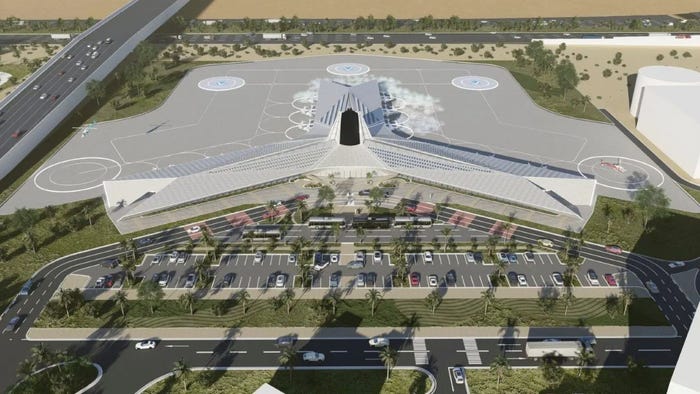Most Read: Humanoid Robot Prototype Launches for Home Use, Air Taxi Company Completes 400 Test Flights 4 Months EarlyMost Read: Humanoid Robot Prototype Launches for Home Use, Air Taxi Company Completes 400 Test Flights 4 Months Early
Also inside, autonomous railcar startup closes $14.4M funding round, Amazon inks deal to advance warehouse automation and flying car startup expands, teams with airport owner

Here are the most-read stories on IoT World Today this week.
Humanoid Robot Prototype Launches for Home Use
Humanoid robot company 1X has unveiled its Neo Beta bipedal humanoid robot designed for home use.
The Neo Beta prototype launch represents a significant milestone for 1X, marking the transition from conceptualization to development. The Neo features bio-inspired designs enabling it to work safely alongside people.
In a video released with the announcement, 1X shows how Neo can work among people.
Designed for general-purpose tasks in homes, the lightweight Neo robot autonomously performs tasks using its built-in AI. It has the height of an average human at 5.5 feet and weighs 66 pounds. The robot can lift double its weight (154 pounds), carry 44 pounds and run at speeds of up to 7.5 mph.
Air Taxi Company Completes 400 Test Flights 4 Months Early
Electric flying taxi company Archer Aviation has completed 400 test flights, four months ahead of its scheduled goal for the year.
The test flights produced data used to evaluate and refine flying vehicle loads, vibrations, performance and handling, according to the company.
The flights included longer distance flights to gather data, increased daily operations to simulate busy flight days, landings in various wind conditions and hovering to collect data on noise.
“When we first set our goal for 400 flights this year it was viewed as aggressive, but here we are in August already knocking it out,” said Adam Goldstein, CEO and founder of Archer. “I’m proud of the Archer flight test team and the supporting groups that made it happen.”
Discover Archer’s air taxi plans
Autonomous Railcar Startup Closes $14.4M Funding Round
Self-propelled, electric-railcar startup Intramotev recently landed $14.4 million in an oversubscribed series A funding round.
The St. Louis-based manufacturer plans to use the investment to continue deploying its railcar systems to customers. Intramotev sells two products: TugVolt, a kit that can retrofit/upfit existing railcars to become battery-electric, self-propelled units and ReVolt, a conversion kit that allows railcars to capture waste energy through regenerative braking.
Read more about Intramotev’s technology
Amazon Inks Deal to Advance Warehouse Automation
Amazon has signed a new commercial agreement with robotics software firm Covariant, including hiring the company’s staff, to accelerate automation in its warehouses.
Through the new agreement, Amazon will receive a non-exclusive license to Covariant’s robotic foundation models. In particular, the aim is to help generalize how Amazon’s robotic systems learn and provide opportunities for how it uses automation going forward.
This will advance on work Amazon has already done to build and incorporate AI models into its robotics for safer and more adaptable systems at scale, including designing new ways for robots to better serve employees and custom
Find out how Amazon uses AI and robotics
Flying Car Startup Expands, Teams With Airport Owner
Flying car startup Pal-V and Forum Group, owner of Breda International Airport, signed an agreement to establish an assembly and delivery center for the flying vehicles at the airport.
The airport in the south of the Netherlands would be the first European airport to host a dedicated Pal-V assembly and delivery center.
Forum Group had developed a strategy to convert the airfield into a mobility innovation hub.
The Pal-V (personal air and land vehicle) vehicle Liberty is certified to drive on public roads and expects its aviation certification this year.
About the Author
You May Also Like






